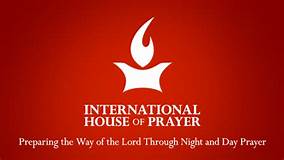WHEREVER you are, wherever you go, you are miserable unless you turn to God. So why be dismayed when things do not happen as you wish and desire? Is there anyone who has everything as he wishes? No -- neither I, nor you, nor any man on earth. There is no one in the world, be he Pope or king, who does not suffer trial and anguish.
Who is the better off then? Surely, it is the man who will suffer something for God. Many unstable and weak-minded people say: "See how well that man lives, how rich, how great he is, how powerful and mighty." But you must lift up your eyes to the riches of heaven and realize that the material goods of which they speak are nothing. These things are uncertain and very burdensome because they are never possessed without anxiety and fear. Man's happiness does not consist in the possession of abundant goods; a very little is enough.
Living on earth is truly a misery. The more a man desires spiritual life, the more bitter the present becomes to him, because he understands better and sees more clearly the defects, the corruption of human nature. To eat and drink, to watch and sleep, to rest, to labor, and to be bound by other human necessities is certainly a great misery and affliction to the devout man, who would gladly be released from them and be free from all sin. Truly, the inner man is greatly burdened in this world by the necessities of the body, and for this reason the Prophet prayed that he might be as free from them as possible, when he said: "From my necessities, O Lord, deliver me."
But woe to those who know not their own misery, and greater woe to those who love this miserable and corruptible life. Some, indeed, can scarcely procure its necessities either by work or by begging; yet they love it so much that, if they could live here always, they would care nothing for the kingdom of God.
How foolish and faithless of heart are those who are so engrossed in earthly things as to relish nothing but what is carnal! Miserable men indeed, for in the end they will see to their sorrow how cheap and worthless was the thing they loved.
The saints of God and all devout friends of Christ did not look to what pleases the body nor to the things that are popular from time to time. Their whole hope and aim centered on the everlasting good. Their whole desire pointed upward to the lasting and invisible realm, lest the love of what is visible drag them down to lower things.
Do not lose heart, then, my brother, in pursuing your spiritual life. There is yet time, and your hour is not past. Why delay your purpose? Arise! Begin at once and say: "Now is the time to act, now is the time to fight, now is the proper time to amend."
When you are troubled and afflicted, that is the time to gain merit. You must pass through water and fire before coming to rest. Unless you do violence to yourself you will not overcome vice.
So long as we live in this fragile body, we can neither be free from sin nor live without weariness and sorrow. Gladly would we rest from all misery, but in losing innocence through sin we also lost true blessedness. Therefore, we must have patience and await the mercy of God until this iniquity passes, until mortality is swallowed up in life.
How great is the frailty of human nature which is ever prone to evil! Today you confess your sins and tomorrow you again commit the sins which you confessed. One moment you resolve to be careful, and yet after an hour you act as though you had made no resolution.
We have cause, therefore, because of our frailty and feebleness, to humble ourselves and never think anything great of ourselves. Through neglect we may quickly lose that which by God's grace we have acquired only through long, hard labor. What, eventually, will become of us who so quickly grow lukewarm? Woe to us if we presume to rest in peace and security when actually there is no true holiness in our lives. It would be beneficial for us, like good novices, to be instructed once more in the principles of a good life, to see if there be hope of amendment and greater spiritual progress in the future.






















































